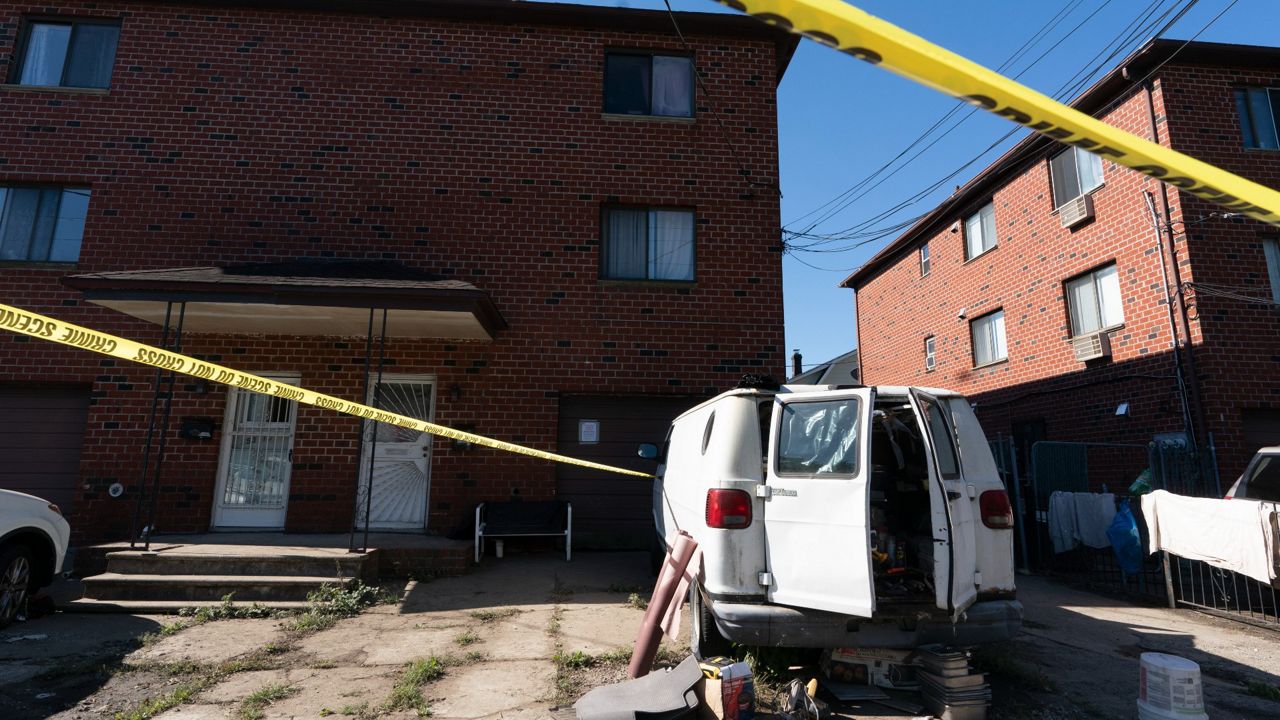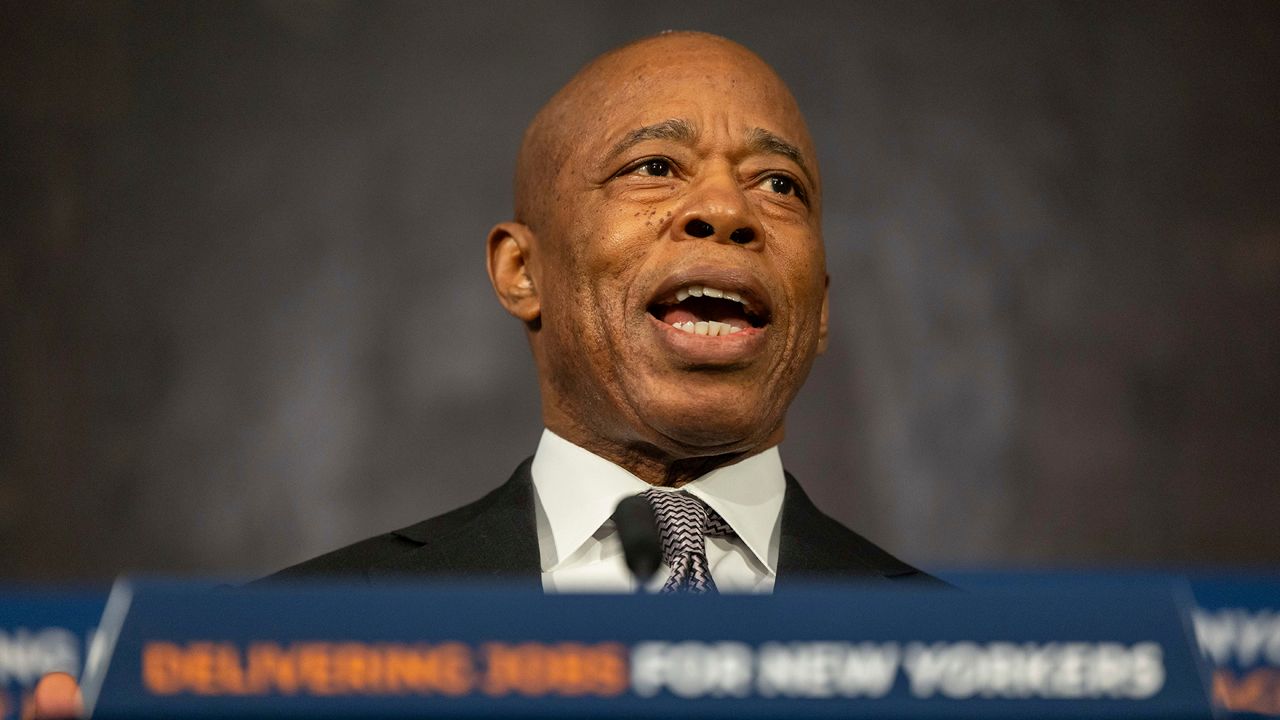There are as many as 114,000 illegal basement apartment units in New York City, according to estimates. On Wednesday night, five of them became death traps where people drowned in floodwaters caused by historic downpours from the remnants of Hurricane Ida.
These basement homes are now front and center in the city’s reckoning after the storm, which brought more rain in a single hour than the city has ever recorded.
They also represent a persistent issue that the city has tried and failed to address in recent years. A pilot program to legalize the dwellings had a minimal impact, and housing advocates worry that efforts to catalog basement units would result in evictions and increased homelessness.
At a Friday news conference, Mayor Bill de Blasio acknowledged the city’s struggles to address basement units, and said that both locating and updating all the dwellings so that they meet city building codes would be costly and take many years.
“It’s just an extraordinarily challenging set of circumstances,” he said.
“This water moves so suddenly and fiercely, there's not a way to protect each and every apartment from that,” he added.
De Blasio announced a series of steps the city would take in the wake of the flooding to prevent further deaths and the widespread scenes of people stranded in cars on flooded roadways.
Besides preparing a comprehensive plan for cataloging and updating basement units, de Blasio said the city would create a new storm warning system, including mandatory evacuations, especially of basement units, when forecasts were most dire.
“It's not just saying to people, ‘You need to get out of your apartment,’” he said. “It’s going door to door with our city agencies to get people out.”
De Blasio said that in the near term, the city can rely on emergency alerts sent to residents’ phones to alert them to risks of flooding.
However, the reach of those alerts is limited. Automatic alerts - the kind that cause nearly all city cellphones to sound a siren noise simultaneously - are only broadcast in English and Spanish, according to Allison Pennisi, a spokesperson for the city’s Office of Emergency Management. Text message alerts from the city are available in 14 languages, Pennisi said, but require a manual sign-up.
The city’s Department of Buildings Friday said it is investigating flood deaths at six units: one legal basement and four illegal basement conversions in Queens, and another illegal conversion in Brooklyn. The agency said it has received reports of flood damage for more than 1,100 properties.
Basement units are most commonly occupied by undocumented immigrants living in the outer reaches of the Bronx, Queens and Brooklyn, according to a 2008 report by the Pratt Center. Immigrants seek out such units because they are less expensive, and require less scrutiny of documents and finances, than legal units. The Pratt Center estimated that the units accounted for nearly a third of the city’s below-market rate housing.
Many of these tenants are not aware their homes are illegal, the report found, while others live in cramped basements with multiple windowless bedrooms that pose obvious safety risks. One of the cellars being investigated for a flood death contained four single-room occupancy units, the buildings department said.
Recent efforts have shown little progress in legalizing basement units. The city requires homeowners looking to rent out their basements as separate units to submit plans and receive approval, and an updated certificate of occupancy, from the city; it is illegal to rent out the unit without meeting strict building codes such as for windows, exit routes and ceiling height.
In 2018, the city began a pilot program in East New York to legalize basement units. However the program, initially funded with $1 million over three years, was cut during last year’s city budgeting process, and its funding was not restored this year. Only nine homeowners received money from the program.
“We saw a little progress. We didn't see anywhere near the progress we hoped for,” de Blasio said of the program. “It turns out trying to take an illegal basement up to code is incredibly difficult, very costly, and takes a lot of cooperation with the homeowner.”
Any plan that addresses such units in the context of rainwater flooding needs coordination across multiple levels of government, said Katherine Mach, an associate professor of environment science at the University of Miami who studies policy responses to extreme climate events.
In the case of New York City, she said, there need to be housing options made available before the city attempts to move people out of basement houses.
“You kick 100,000 people out of basement apartments that aren't up to code, where do they go?” she said.
Housing advocates are concerned that if the city now tries to identify illegal basement dwellings, it will result in a rash of evictions. A spokesperson for the city’s Department of Housing Preservation and Development told NY1 editorial partner THE CITY that it would issue a vacate order for tenants of basement units looking for post-storm recovery assistance if their apartment was deemed unsafe, and that tenants in those units could find temporary housing through the Red Cross.
The city needs to adopt a “harm reduction” model for legalizing basement units, said Brad Lander, a City Council member, meaning that homeowners and tenants need to be given a period of immunity from vacate orders and other enforcement while the city makes basement units safer.
Then, Lander said, the state legislature should create a legal system for legalizing those units, similar to the Loft Law, which protected tenancy rights of illegally converted lofts but required safety improvements over time.
In the near-term, he said, the city can turn to two inexpensive safety improvements for basement units: installing fire alarms and backflow preventers, which stop sewage water from bubbling into units through toilets.
But it is unclear where the city could get money to pay for the extensive upgrades and repairs needed to bring its stock of basement units up to code.
“The problem is that people aren't going to tell you they have an illegal basement,” Lander said. “Unless we can resolve the illegality, I don't know how we can target safety improvements to them.”








_Dnt_MTA_Fare_Gates_Clean)